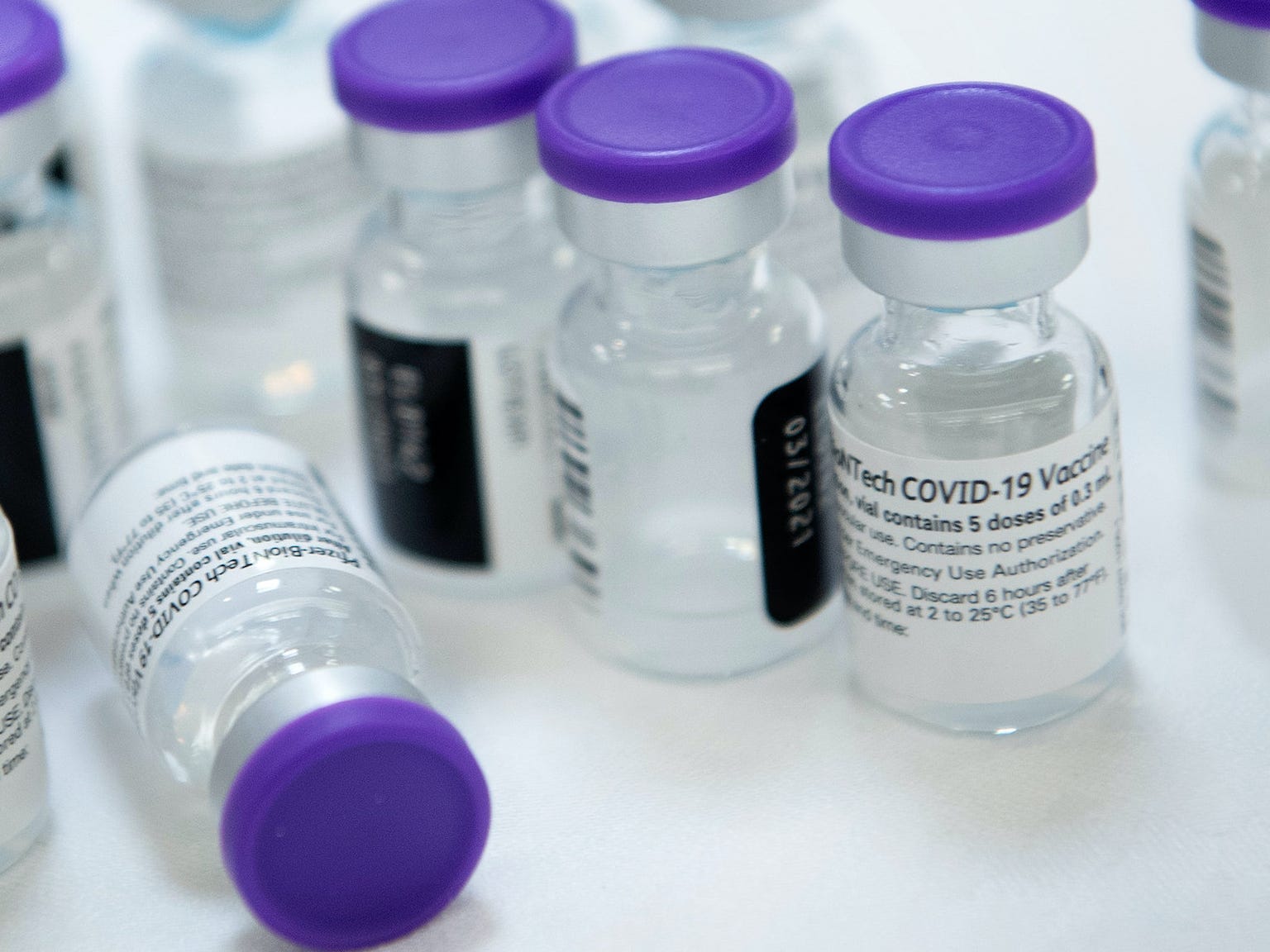
Photo by BRENDAN SMIALOWSKI/AFP via Getty Images
- COVID-19 vaccines are being sold via online black markets, according to a new cybersecurity report.
- Sellers are asking $500 per dose, on average, in the form of cryptocurrency that’s hard to track.
- As many as 30% of dark web doses may be real, experts say, but may be expired or not safely stored.
- Visit Insider’s homepage for more stories.
COVID-19 vaccines have hit the dark web.
As cities and states struggle to vaccinate long waitlists of people in a timely manner, some seeking protection against the novel coronavirus are turning to dubious online marketplaces.
As many as 30% of these black market offerings might be legitimate, culled from leftover stock, according to a report published March 4 by the cybersecurity firm Kaspersky
However, getting a vaccine this way isn’t worth the risk, experts say, since it’s hard to know what you’re getting. If you are lucky enough to get the real thing online, it may not even safe or effective, since vaccines can be tricky to store and transport.
Hundreds of vaccine doses have been sold online
Kaspersky experts found online marketplace ads for of all three major vaccines (from Pfizer, Moderna, and AstraZeneca). The asking price ranged from $250 to $1,200, averaging about $500 per dose, and sellers almost always requested payment in bitcoin, a cryptocurrency that’s difficult to track.
There was also an array of counterfeit vaccine offerings from unverified sources, as well as ads requesting "donations" instead of payments.
The researchers were able to find that most of the sellers were located in France, Germany, the UK, and the US, and many had completed hundreds of vaccine sale transactions.
Experts have said that it's conceivable at least some of these sales were of legitimate vaccines, possibly pocketed from a pharmacy or hospital surplus and sold online.
"There is evidence that suggests some of these sellers are providing real doses," said Dmitry Galov, the Kaspersky researcher who led the study, told CBS News. "There are pictures of packaging and medical certificates. It looks like some of these people do have inside access to medical institutions."
Kaspersky also reported multiple positive reviews on some of the listings, although it's impossible to verify if these are real or fabricated.
Vaccines need to be stored correctly to work
Even if real vaccines are being offered for sale, it's not clear that the vaccines are within their shelf life for safe and effective use.
Previously, doses near their expiration date have been a major source of unexpected vaccinations for some lucky patients. It's conceivable that expired doses were discarded, only to be snapped up and resold online.
Experts also can't determine if the black market vaccines have been stored correctly. Moderna and Pfizer need to be stored at extremely low temperatures, making them logistically difficult to transport. That's because the vaccines rely on messenger RNA, which can be fragile. A deep freeze prevents it from breaking down. As a result, a vaccine that's been exposed to warmer temps might be ineffective.
The report concludes that while people are understandably eager to get vaccinated against COVID-19, the safest bet for your wallet and health is to wait your turn.